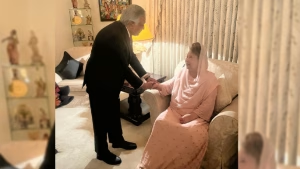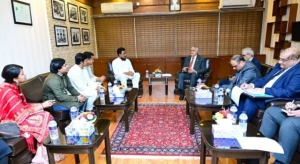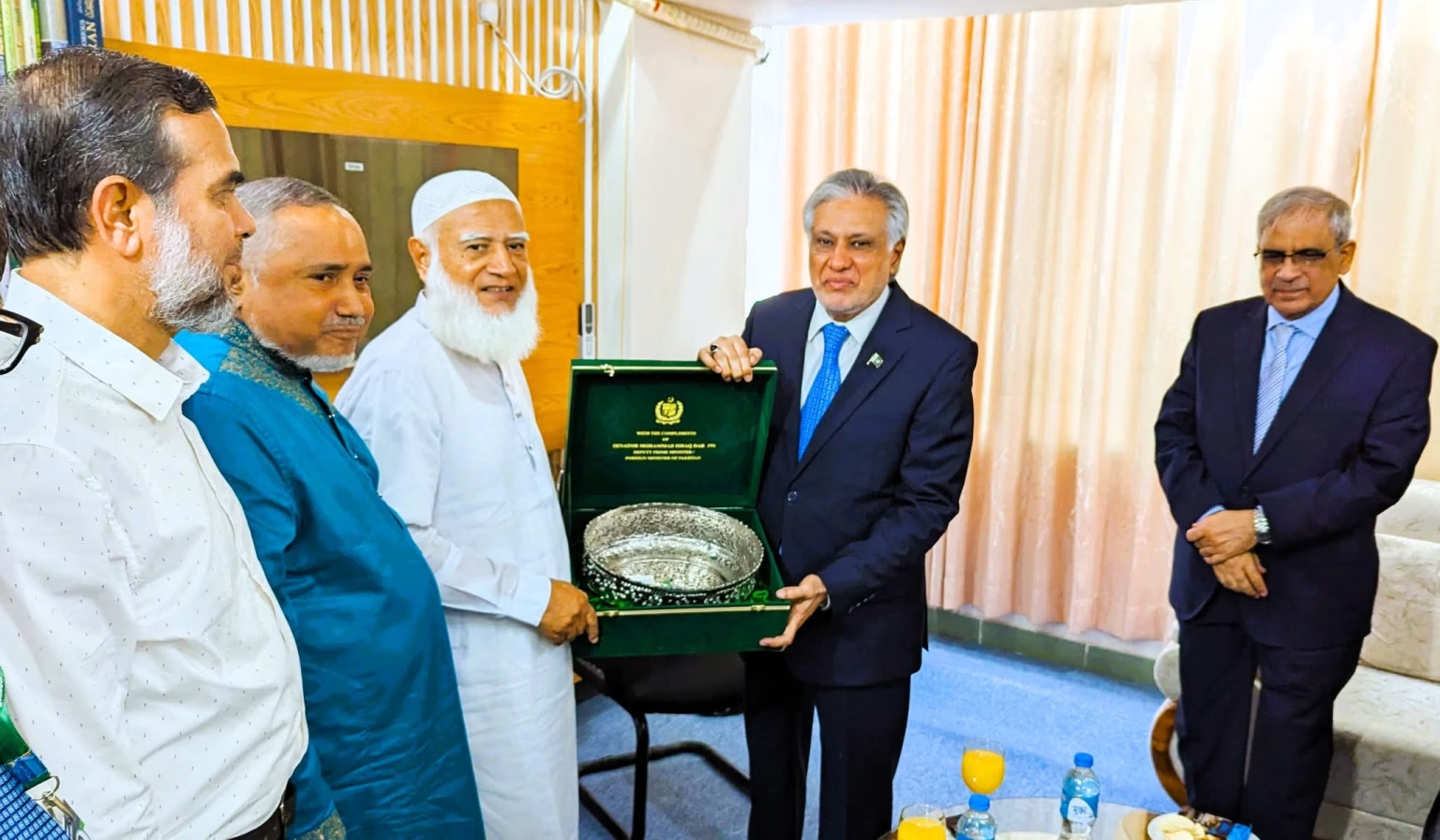The visit of a foreign delegate is apparently seen as a routine tour to improve bilateral relations between two countries. However, everywhere in the world, such visits are preceded by a series of behind-the-scenes negotiations by the diplomats of the involving countries, aimed at pushing their respective national interests.
When a series of meetings of the visiting dignitary with major political parties in the host country takes place, it sends a message that the tour is more than just a bilateral visit, formally arranged by the officials of the foreign ministries of the two countries.
Pakistan’s Deputy Prime Minister and Foreign Minister Ishaq Dar’s meetings with three major parties—BNP, Jamaat, and NCP—on the first day of his three-day visit to Bangladesh demonstrate how Dhaka and Islamabad’s bilateral relations have peaked under Yunus’s interim administration, following the ousting of pro-Indian prime minister Sheikh Hasina, who had snubbed Pakistan during her authoritarian rule from 2009 to early August 2024.
On the second day of his tour, he visited the residences of BNP Chairperson Khaleda Zia and Jamaat chief Shafiqur Rahman, engaging with them directly, which highlighted his seriousness about building relationships with political parties in Bangladesh. This raised many speculations.

Political and security analysts whom TIMES of Bangladesh spoke to on Monday believe that the visits of the two Pakistani ministers – including Commerce Minister Jam Kamal Khan, who arrived in Bangladesh two days ahead of Ishaq Dar – and their efforts to engage with political parties beyond official talks, should not be seen as a mere event.
“They [Pakistan] seem very serious about repositioning their influence in Bangladesh, which they lost during Hasina’s regime. In the absence of Hasina and her party, all three major parties are also showing interest in building ties with Pakistan,” said one security analyst.
According to leaders of BNP, Jamaat, and NCP, the Pakistan High Commission in Dhaka communicated with them and arranged meetings with Ishaq Dar. All the parties agreed to hold the meetings at the High Commission, which experts have said are not dignified. “They could have held the meetings at their party offices or at hotels.”

Under Hasina’s regime, Bangladesh’s alignment with India was evident. India, too, developed its ties primarily with her party for its own interests, and the influence of BJP leaders and government officials on Bangladesh was no secret.
“We don’t want that situation again. Our political parties should not allow others to dictate the course of the relationship,” a Dhaka University professor told Times of Bangladesh, on condition of anonymity.
At the meetings, the issue of the 1971 Liberation War was raised, but the Pakistani side was reluctant to continue the discussion. Instead, they were more interested in understanding the parties’ stance on the ongoing reforms and the forthcoming election, sources within the parties said.
“They were keen to know about the Indian hegemony in Bangladesh and how to prevent it,” an NCP leader, who participated in the meeting with the Pakistan Deputy Prime Minister, told TIMES of Bangladesh.
More delegates from Pakistan, including senior ministers, are expected to visit Dhaka in the next few months.


